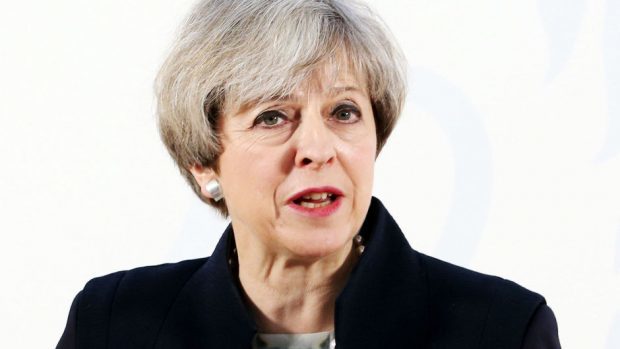Explaining her decision to call an early general election, Theresa May claimed divisions at Westminster risked hampering the Brexit negotiations.
Despite repeatedly ruling one out, the prime minister insisted it was needed to remove the “risk of uncertainty and instability”.
Her motivation was obvious.
Opposition to her approach has been growing, including on her own benches.
And with only a slim majority, getting the necessary legislation through parliament looked increasingly difficult.
Her conclusion? Increase that majority and smooth the path.
A landslide victory would also give her the personal mandate she has been lacking.
One after the other yesterday, she singled out Labour, the Liberal Democrats and the SNP for threatening to stand in the way of Brexit.
It was a very telling justification – the prime minister, who made her final decision while on a walking holiday in Wales, clearly wants it all her way and in her eyes, an election is the logical means to that end.
But her words were worrying.
Because surely the job of opposition MPs is to oppose, to speak out when they don’t agree?
The clue is in the title.
Westminster is not meant to be a place where everyone agrees all of the time.
Many welcomed the decision, however, particularly the Liberal Democrats who view it as a chance to reshape the course of Brexit.
But that could turn out to be wishful thinking.
The party said membership surged in the wake of the news and they may increase their share of the vote, but this might not translate into seats.
Moreover, Labour is facing a humiliating beating, with the Tories currently leading Jeremy Corbyn’s party by an average of 17 points.
So despite his pledge to offer an “effective alternative” and Tim Farron’s optimism, Mrs May will go into the contest enjoying the largest poll lead of any Conservative prime minister in modern history.
The stage is set for her to tighten her grip on the reins of power and press ahead with a so-called hard Brexit.
